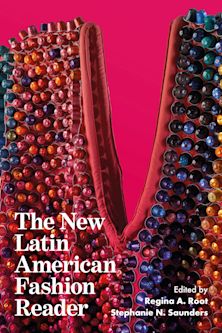Liberation Theology and the Others
Contextualizing Catholic Activism in 20th Century Latin America
Liberation Theology and the Others
Contextualizing Catholic Activism in 20th Century Latin America
Description
Looking beyond prominent figures or major ecclesial events, Liberation Theology and the Others offers a fresh historical perspective on Latin American liberation theology. Thirteen case studies, from Mexico to Uruguay, depict a vivid picture of religious and lay activism that shaped the profile of the Latin American Catholic Church in the second half of the 20th century. Stressing the transnational character of Catholic activism and its intersections with prevalent discourses of citizenship, ethnicity or development, scholars from Latin America, the US, and Europe, analyze how pastoral renewal was debated and embraced in multiple local and culturally diverse contexts. Contributors explore the connections between Latin American liberation theology and anthropology in Peru, armed revolutionaries in highland Guatemala, and the implementation of neoliberalism in Bolivia. They identify conceptions of the popular church, indigenous religiosity, women’s leadership, and student activism that circulated among Latin American religious and lay activists between the 1960s and the 1980s. By revisiting the multifaceted and oftentimes contingent nature of church reforms, this edited volume provides fascinating new insights into one of the most controversial religious movements of the 20th century.
Table of Contents
1.Introduction: Liberation Theology and the Other(s)
Christian Büschges, Andrea Müller and Noah Oehri
Part 1: Representing the Poor
2.The anthropological pastor: Liberation theology and the social representation of Andean rural communities (1950s-1980s)
Christian Büschges
3.The Andean Pastoral Institute (IPA) and the Others: Social Science, Pastoral and Liberation Theology in the Peruvian Highlands
Rolando Iberico Ruiz
4.Making Liberation Theology Indigenous: The Seminario Regional del Sureste (SERESURE) and Indigenous Mexico, 1969-1990
Eben Levey
5.Missionary or Revolutionary? Bishop Gerardo Valencia Cano and the Emergence of an Afro-American Liberation Theology in Buenaventura, Colombia
Aline Helg
6.Indigenous Theologies in Abya Yala: Its Repercussions on Progressive Policies in Latin America
Josef Estermann
Part 2: Pastoral Innovation
7.Evangelization as Civic Activism: Discerning and Embodying the Jesuit Social Apostolate in the Urban Outskirts of Lima (Peru,
Product details
| Published | 28 Sep 2021 |
|---|---|
| Format | Ebook (PDF) |
| Edition | 1st |
| Extent | 326 |
| ISBN | 9781978796119 |
| Imprint | Lexington Books |
| Illustrations | 5 b/w illustrations; 2 tables; |
| Publisher | Bloomsbury Publishing |
Reviews

ONLINE RESOURCES
Bloomsbury Collections
This book is available on Bloomsbury Collections where your library has access.



































